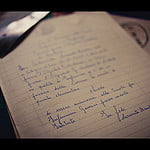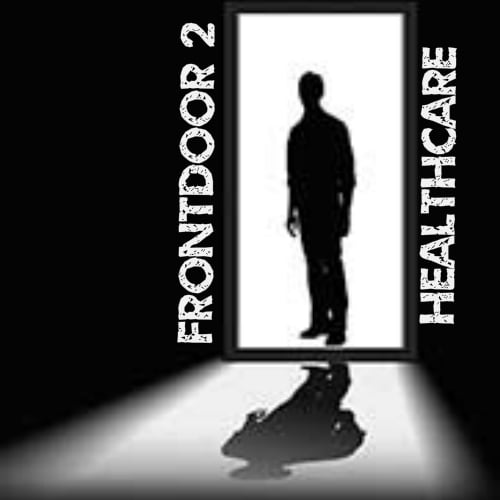This Counterpoint is an open letter that was written in response to a recent Globe & Mail commentary (Think medical school is for you? You’re probably wrong) which took a pessimistic perspective on the pursuit of medicine as a career. This is the fifth in a series of replies written by the BoringEM team that will feature the perspective of a physician at a different stage of their medical career.
This piece contains the reflections of a resident physician, Sarah Luckett-Gatopoulos (BoringEM Resident Editor), who has just newly graduated from medical school.
Please join in this conversation by tweeting with us using the hashtag #DearPreMed.
Dear Aspiring Medical Student,
I graduated medical school in May, began my post-graduate training in July, and am now a first year emergency medicine resident. You received some pretty terrible advice recently in the form of an article that implied that medicine is a lazy choice, fueled by either naïve idealism or disingenuous claims that belie a desire for money, prestige, and power. You were advised to re-think your desire to pursue medicine, which would inevitably end in burnout and dissatisfaction.
I have some advice for you, too: Be brave.
Be brave, because nothing will be required of you as much as courage will be in the coming years.
Medicine is an exciting but harrowing journey, and it starts with the tedium of MCAT review books, the excruciating vulnerability of personal statements, and the heart-pounding anxiety of hitting ‘submit’.
I struggled with the MCAT, spending long evening hours poring over molecular models, etching pages of physics equations into my exhausted brain, and reviewing redox reactions before I fell asleep each night. The hardest parts of the application, though, were writing personal statements. It was difficult to articulate my goals for my medical career, to write down what I thought I could bring to the field of medicine, and to argue I was as worthy as any other applicant of a coveted spot in one of our country’s medical schools. I was an outsider to medicine, but no one – not even those born into the cult of Aesculapius – can understand what medical education feels like before she is there. Before you crack the first textbook or meet your first patient, you do not know what your personal journey will be like. You may interrogate your mentors hoping to gain insight, but you are unique, and your experiences will be different. Ultimately, courageous self-examination is your surest route to understanding your suitability for medicine at this early juncture.
Be brave, because you will learn very soon that neither naïve idealism nor the love of money, prestige, and power can carry you through the difficult early years of your training.
In my first year, I battled heart-rending homesickness. My undergraduate education in psychology and music studies had furnished me with almost no knowledge of anatomy and physiology, and I grappled with ‘basic’ course work. I wallowed in feelings of inadequacy and disconnectedness. I considered dropping out.
It was in those moments of serious contemplation that I searched myself and those around me for reasons to stay. None of my reasons was a hope for a big paycheque. As I had my first patient contacts, I found that my desire to help was genuine and heartfelt. This desire was stronger and more satisfying than any other reason listed by Ms. Sinclair. You will feel inadequate and uncertain, too, and if you are brave enough to examine those feelings, you (and your patients and colleagues) will be richer for it.
Be brave, because you will confront things about yourself you wish you didn’t know.
I was horrified to find myself resenting a patient who had returned to the emergency department under life-threatening circumstances because she didn’t heed my advice the first time I saw her. I was appalled on the day that I found myself judging a patient for smoking when I saw him in clinic with lung cancer. I was saddened on the day I realized that I was not motivated to help an obese patient with knee pain who would not lose weight. I was challenged to become more reflective, to understand my reactions to these patients, and to learn to approach them with compassion. Medical training is a journey of self-discovery, and not everything you will learn about yourself will be pretty. If you are honest and courageous in facing your shortcomings, you will become a trustworthy clinician.
Be brave, because you may, at some point, be drenched in the heat of someone’s blood, urine, and vomit, but you will feel the burn of their disdain more acutely than any physical discomfort.
In search of diagnosis or therapy, you will hurt patients and be unable to explain to them how you are helping. You will be yelled at, at least once during clerkship, by a patient. You will be faced with an attending who is condescending. You will deal with a resident who treats you as a personal assistant.
In my final year of medical school, I was yelled at by a patient whom I had cared for over the previous week. He called me names that I had never been called before. If you are brave, you will learn that you need not be a lightning rod for someone else’s abuse. If you are courageous, you will learn to stand and speak calmly when those around you are shouting. And you will learn to advocate assertively for your patients, even when they do not thank you. As you learn to speak about the times when you feel used, abused, or ignored, you will find comfort in your peers and you will become a resource to them when they are similarly challenged.
Be brave, because you will watch someone die, and you will feel helpless.
In my third year of medical school, I watched a patient die in the emergency department. The patient could not be saved, but we were not useless. The ED team brought her family in to hold her hand as she went. If you are brave, you will learn that you can care even when you can’t cure.
Be brave because July 1st of your inaugural year as a doctor creeps up on you in the same way your application due date is creeping up on you now – slowly first, then all at once – and you may find yourself in an unfamiliar hospital in an unfamiliar city, pens and ACLS cards stuffed into a pocket of your greens, while you supervise a case with a medical student. You will co-sign his note, taking responsibility for whatever happens to the patient under his care, you will help him write an order, and then you will be paged back to the ward with a screech and a buzz because someone is bleeding, vomiting, or in pain. Your heart will pound like you’ve run a marathon, but if you are brave, this is when you will learn.
Think medical school is for you?
Be honest with yourself. You won’t know, but this will help you decide when the time comes.
Be vulnerable with your friends and colleagues. They will help you throughout your journey.
Be careful with your time and self-care. In the wise words of your flight attendant, you must help yourself before you can help the passenger next to you.
Medicine is neither a lazy choice nor an easy path.
Be brave, because the journey will demand it.
With much love, your future colleague,
S “Luckett” LG
Resident Physician
This part 5 of the #DearPreMed Series in the Life in Medicine section of BoringEM.
Edited by Teresa Chan (@TChanMD), Brent Thoma (@Brent_Thoma), and Eve Purdy (@purdy_eve)



